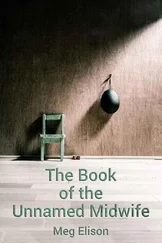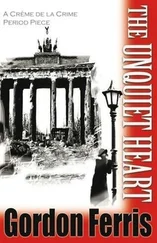This was more like it. This was being in the world.
When the bartender returned to see if he wanted another, he asked her, “Have you seen all these bees around lately?”
“Bees?”
“Honeybees.”
“I haven’t seen any bees.”
“I saw a bunch of them dead in Bryant Park just now. Do you know if bees are supposed to be around this early in the spring? Or if they hibernate?”
“I know nothing about bees,” she said. “Steve, do you know anything about bees?”
“Bees?” said the man at the end of the bar.
“Like honeybees.”
“I know they make honey,” he called down to them.
She turned back to Tim. “Charmer, isn’t he?”
She drifted back down the bar.
When he and Jane talked about her drinking, they were free of the recriminations that might have taken hold of them over some lesser matter. This only seemed to make it harder to talk about. A strangeness lay coiled in their domestic familiarity. They lay in bed in anticipation of talking but remained silent for long stretches of time, as if the subject under discussion were not the self-evident steps they would have to take to address her willful drunkenness but the unimaginable ways they might resolve his involuntary walking. They stared into the essential mystery of each other, but felt passing between them in those moments of silence the recognition of that more impossible mystery — their togetherness, the agreement each made that they would withstand the wayward directions they had taken and, despite their inviolable separateness, still remain. It had nothing to do with how age and custom had narrowed their circumstances or how sickness had shaped them outside of their control. It was not a backward but a forward glance.
“I don’t want to go,” she had said.
“It will go by fast.”
“What will you do?”
“Wait for you. Visit you.”
“I don’t see why,” she said.
She hated herself for having failed him. Becka had done it better, she said. He would have done it better by an order of magnitude. He interrupted her. If she was going to assign blame, he would have to take his share. He never intended to bring this on them, no, but intention, or the lack of it, could not grant a full pardon. He could not escape blame even if it was the faultless blame of being born and falling ill, blame that was also Jane’s, that was anyone’s, really — everyone’s price to pay for being mortal.
“We’ll take a vacation afterward,” he said. “Where would you like to go?”
“How often will you visit me?”
“As often as they let me.”
Visiting hours were from six to nine. He often left work early to spend a few hours with her before returning home.
The ring of his BlackBerry brought him back to the bar and the barstool.
From the moment Masserly began to speak, with his clown’s voice that seemed to suggest the arrival of puberty any day now, Tim forgot his resolution to remain in the world and resumed a bitter longing for his old job. He didn’t even mark the transition. The pockmarked bar smooth to the touch, the mahogany details, the bottles arrayed before the distressed mirror like all the king’s men — they faded the moment of the phone call. “Tim, it’s Kyle Masserly.”
“Yeah?”
“This motion for summary judgment in Keibler.”
“How do you know about that?”
“Didn’t you get a call from Kronish?”
“How do you know about my motion, Masserly?”
“They gave it to me.”
“They who?”
“They want me to clean it up. Not that it, you know—”
“Clean what up?”
Tim listened intently. He had his finger drilled into his opposite ear to block out the music from the bar, and for a quick second it sounded as if Masserly had hit the mute button.
“Did you just put me on mute, Masserly?”
The office ambiance came back with the kid’s voice. “Yeah, clean it up. They’re going to submit it tomorrow.”
“To the court?”
“But like I need to do anything to this thing.”
“They’re going to submit that motion to the court?”
“Tomorrow. I just got off the phone with—”
He was standing now between the bar and the stool, trying to concentrate on what Masserly was saying.
“With who?” he said. “Masserly?”
“—and they love it.”
“I wrote that motion,” he said.
“Which is why I’m calling. You should get credit, not me.”
“Kronish told me it was pointless.”
“And where did you get the genius to—”
Tim thought he heard the start of a guffaw just as Masserly’s voice cut out. His end had gone mute again. Or so it seemed. Sometimes lawyers made phone calls with one finger poised over mute so they could bad-mouth the opposition.
“Did you just hit mute again? Is someone in the office with you?”
“Mute? Look, I was asking where you got the insight to write a motion for summary judgment in Keibler when there’s Horvath. It’s genius. But you know Horvath chapter and verse the way you make implicit the differ—”
There might have been another guffaw, but the line went dead.
Another thing he had to do after getting his life back was tend to his ailing body. He visited the Russian and Turkish Baths on 10th Street, not far from Tompkins Square Park, where he sat in the steam room. The heat softened his bones. A bucket of cold water poured over his head reawakened dulled nerves. He liked the place, despite the fact that the other men made him feel like an anorexic. They were hunched, hairy, burly-backed men with traces of immigrant pasts who walked naked around the locker room, their taut bellies and bulby pricks too much for the rough handkerchiefs that passed for towels at the registration desk. He didn’t mind. He wasn’t vain. Vanity was a luxury of those exempt from the compromises of a long illness. He felt self-conscious only of his missing toes.
The entrance to the baths resembled any other crumbling red stoop in the city, with a lunette above the double doors that read Tenth St. Baths. A man came out just as he was entering and held the outer door open for him. Tim thanked him and climbed the small flight of stairs and almost went through the black door to the registration desk when he suddenly stopped. He dropped his gym bag and ran quickly back down the stairs.
He spotted the man walking east toward Avenue A. He was just then opening a translucent umbrella screen-printed with a map of the world. The unfurled umbrella swallowed up his head and shoulders.
Tim needed a better look, a clear and unambiguous look, to confirm that it was the same man he’d encountered on the Brooklyn Bridge. He ran down the stoop stairs and crossed to the opposite side of the street. It still felt unnatural to walk hurriedly with missing toes. He pressed down on their phantoms. He reached the corner ahead of the man and lingered there to see in which direction he would turn. The man waited for the traffic to clear and then walked across Avenue A. Tim followed him into Tompkins Square Park.
He kept his distance as they walked along the curving path, past benches and fenced-off trees. As they approached 7th Street, Tim quickened his pace. He walked ten feet ahead of the man and then turned and walked toward him. The man’s head was downcast and buried in the umbrella. Tim realized he wasn’t going to get the look he needed unless he said something.
“Excuse me.”
The man peered up. Tim saw the same drawn, lonely face, the same dimpled chin, the same long pointy nose with the knuckle in the middle. The man lowered his head quickly and resumed walking.
They hit 7th Street. They walked alongside each other just as they had on the bridge. “Hey,” said Tim, but the man would not be distracted again. Tim tapped his umbrella, and when that did nothing he grabbed it and held on. “Hey, I’m talking to you.”
Читать дальше












